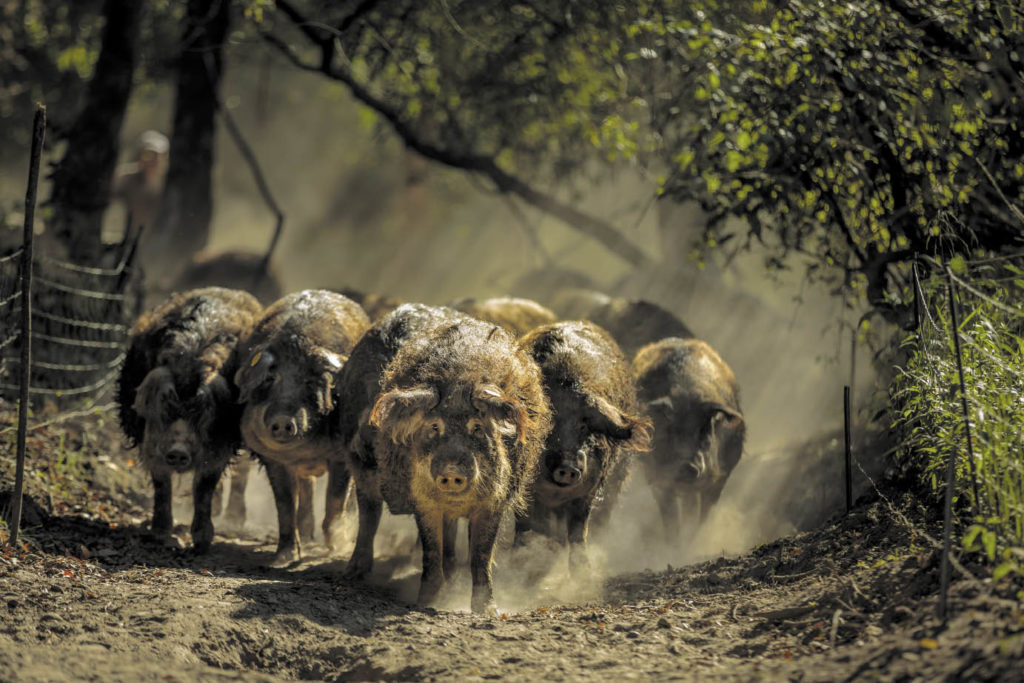If Kobe is the king of beef, then Mangalista is the king of pork – or at least, as close as the best pork can be today. You will not yet find it in your favorite steakhouses like Rodizio Grill, Morton’s, and Peter Luger but we can always dream.
Rare Breed
The Mangalista pig isn’t your standard commercially-raised pig. For one thing, it looks like a pig that has been wrapped in wooly fleece, a curly-coated delight to look at. You will think of it as such a whimsical animal that butchering it for its flesh seem like a sin.
For another thing, it’s a rare breed with a heritage stretching back to 200 hundred years in Hungary. Pig breeders aren’t inclined to breed it on commercial basis because of the stringent requirements for success.
The Mangalista pig is a descendant of the European wild boar as well as the cousin of the black-footed Iberian pig. The result: Its meat combines the desirable qualities of both types.
Buttery Pork, Indeed, with Superior Flavors
When Mangalista pig is breed the right way, its meat has been described as the Kobe of pork. Think of these qualities and imagine the flavors and textures on your mouth: High fat content, beautiful marbling, and concentrated flavor unlike any pork in a butcher’s shop and steakhouse.
When cooked by the finest chefs, Mangalista pork is creamier and softer, akin to the experience of dining on Kobe beef. You don’t even need accompaniments to enjoy it!
Before its resurgence in popularity, Mangalista pork was rejected for these qualities, too. The low-fat white pork was preferred because of its supposed healthier content even at the expense of less flavor.
Today, chefs are becoming fans of one of Hungary’s best-known food products. The United States and United Kingdom markets are awakening to its beauty on the plate and palate.
The meat is versatile, too. Due to its high mono-saturated fat content, it has the ideal composition for curing and charcuterie including salami and pancetta. It can also be cooked in various ways, thanks to its tender juicy meat requiring minimal seasoning, from grilling to smoking.
In the United States, you can ask for it in Michelin-starred restaurants like French Laundry, the fine dining restaurant under Thomas Keller’s helm. You may even have tasted of its fat in pastries since it has been called as the best pastry fat – flaky easy to roll out, and with a lovely flavor.
